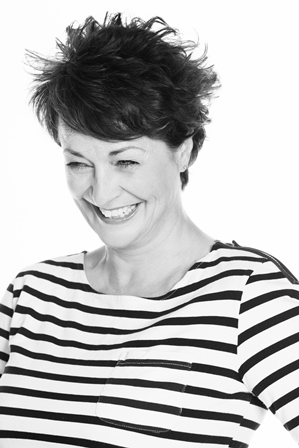
I left a perfectly good career because I wanted to ‘write a novel’. At the time, I imagined that it would grace high street bookstores that I’d visit and I’d run my finger along its spine... I didn’t imagine that it would take almost a decade from that decision to holding my book in the wild. A few people asked: ‘What have you really been doing all that time?’
Well, I was really writing a novel; a few actually. I was being an apprentice. Believing that I could write, that I had some writerly genomes in my twisting DNA, I still had to learn the craft. For me, the learning process (which is far from over) has involved writing and writing and then writing some more; getting some feedback on my writing, attending some classes and then rewriting and editing – until I eventually had a book.
Except nobody wanted it. Agents said I could write but to keep trying. So I did it all again and wrote another book. Ditto. Again. And then again… My debut novel, YOU, ME AND OTHER PEOPLE is the fourth novel I wrote. The final published version of it is probably its seventh re-incarnation.
Why am I saying all of this? Anyone reading this is either a writer or an aspiring writer so they already know how difficult the process is. I suppose I’m saying it because ultimately I want to encourage. There is light at the end of the tunnel. Perseverance is the key.
When I set out to write this piece, I was thinking to myself, ‘If there’s someone out there, like you were, feeling a little in the wilderness, probably about to give up – what advice might you give?’ So, for what it’s worth, here’s my tuppence worth:
- Never give up. It’s not an option. Take a break, walk away from it. In fact, walking away after first draft is a good idea, for at least a fortnight - but even if you think it’s truly awful, you do have to return. Feel free to write an awful first draft. It is that – a first draft, a vomited story which needs a lot of work.
- Find your voice. Like every singer has a different sound, so too does every writer. You want the reader to be able to recognise you in your fiction. I think the more you write, the more you’ll recognise it. Read your work aloud - hear the nuances? There! That’s you.
- Know what you want to write. I’m laughing out loud as I write this because I’m truly the biggest ‘pantser’ living. Plotting in advance is something I’m still trying to embrace, but in all honesty, in an earnest attempt to help anyone reading this have a journey to publication of less than a decade, I think it’s important. So now, (reluctantly) I have a rough outline when I start a novel. I know the beginning, the middle and the end. I know all of the characters who will appear in scenes. I know some scenes and list them. I know the story and themes of the novel but I need not to know the rest. I need to have the freedom of allowing each chapter to happen organically. Others plot their outlines to the minutest detail and good luck to them but, for me, that level of planning ahead destroys my creative process.
- Story, Plot and Theme – Understand the difference before you start. If you instinctively know the difference, you’re lucky, because I’ve tied myself up in knots over the years! Now I try to keep it simple. If the story overall is a journey, then plot is the particular course I opt to navigate. If the story is a multi-storeyed (forgive the pun) house, then plot is the type of brick/stone I use to build it.
If I ask myself now, ‘What’s this story about?’ I want to be able to answer with a finely tuned elevator pitch. “This is a story about a killer shark who gets cancer. Think ‘Jaws’ meets ‘Terms of Endearment’.” Pithy and to the point.
If I ask myself what’s the plot? I expect to repeat ‘and then, and then, and then, and then’ all of the time revealing what actually happens in the story.
With theme, it’s more about the underlying message of what I’m trying to say. For example, with YM&OP - rather than single words like ‘betrayal’ or ‘guilt’, theme, to me, was more about the underlying message like, ‘cheaters never win’ or ‘marriage is a complex relationship.’
- Write every day, whether it be for fifteen minutes or six hours. Write. It’s the only way!
All of the above said (and I do hope that at least some of it might help), I might also add the famous words of W. Somerset Maugham,
- “There are three secrets to writing a novel. Unfortunately nobody knows what they are.”
Fionnuala Kearney pronounced FINOOLA CARNEY lives in Ascot with her husband. They have two grown-up daughters (both with deliberately simply monosyllabic names). One of seven children, Fionnuala likes to write about the nuances and subtle layers of human relationships, peeling them away to see what’s really going on beneath. You, Me and Other People is her first novel.
Comments